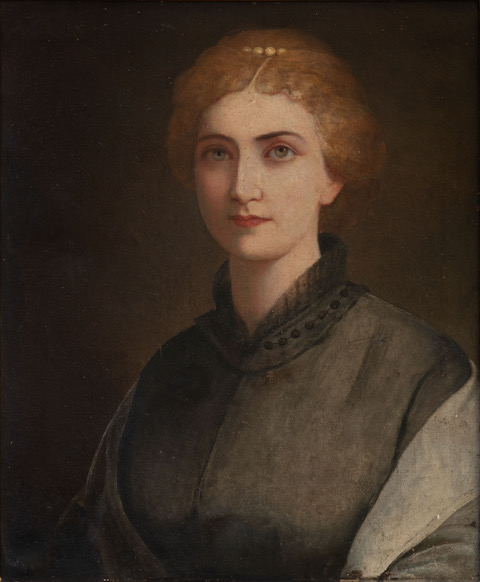“One of the great questions of the day is that of woman’s suffrage,” wrote The Asheville Daily Citizen on Nov. 14, 1894. The topic, the paper continued, “has probably never been thoroughly presented and discussed in Asheville.” But as the editorial quickly pointed out, this was soon to change: resident Helen Morris Lewis and her South Carolina colleague Floride Cunningham were scheduled to hold a public talk at the county courthouse the following evening.
Turnout was “surprisingly good,” the Daily Citizen wrote in its Nov. 16 edition. The event attracted men and women alike and featured introductory remarks by Asheville Mayor Thomas W. Patton.
Following Patton’s brief comments, Lewis spoke. Her words made a strong impression on the paper, which reported: “It is very seldom that audiences in Asheville are addressed by a lady as ‘fellow citizens.’ That was the beginning of Miss Lewis’ address and it sounded well.”
The article went on to summarize much of Lewis’ points, writing:
“It aroused within the speaker intense indignation to think of the stupendous differences in the positions of men and women. A woman may hold the highest position in the schools, and her property may be taxed to pay her salary, and yet she is not nearly so well paid as man. The women who are most injured by the present laws are those whose lives are spent in drudgery, and it should be the duty and the glory of those who have the time and opportunity to help those who are so grievously oppressed.”
Contemporaneous rebuttals to the suffrage movement framed women as intellectually unsuited to vote. According to the Daily Citizen, Lewis countered these assumptions by naming some of the world’s leading female thinkers. Despite their contributions, she noted, men typically cast these women as exceptions to an otherwise inferior sex. “The world likes to ridicule us by calling attention to such anomalies as Dr. Mary Walker and Victoria Woodhull,” she declared. But these women, Lewis continued (along with Susan B. Anthony and Frances E. Willard, both of whom she subsequently named), “will lead to victory the great downtrodden army.”
When not questioning women’s smarts, opponents of the movement pointed to the unruly nature of politics itself as a reason to keep women clear of the process. According to the paper, Lewis rebuked this argument, as well. “The speaker said women who work for their living are daily subjected to more indignities than they would be in going to the polls,” the Daily Citizen wrote.
Cunningham also addressed the crowd, although fewer details were provided about the visiting speaker’s oration. However, the Daily Citizen did note Cunningham’s assertion that if women could cast ballots, “the polling places would not be like cold barns.”
At the article’s conclusion, the paper predicted that those who attended the event “went home thinking more, probably, on the question of woman’s suffrage than they had ever done.”
On Nov. 21, 1894 — four days after the public forum — the Daily Citizen reported that a committee had been formed in Asheville to advance the women’s suffragist movement. Its president was Helen Morris Lewis.
Next week’s Asheville Archives will look at the city’s reaction to the committee.
Editor’s note: Peculiarities of spelling and punctuation are preserved from the original documents.




I’m a local historian currently researching Helen Morris Lewis. I’ve never come across a likeness of her before, so I was wondering if I could get any more information about the origins of this portrait. Thanks!
Thanks Catherine, I sent you an email. But in case anyone else is interested, the photo comes from Ann Joyner’s 1996 thesis, “Helen Morris Lewis: Biography of a Suffragist” (University of North Carolina at Asheville). Thanks for reading Xpress.